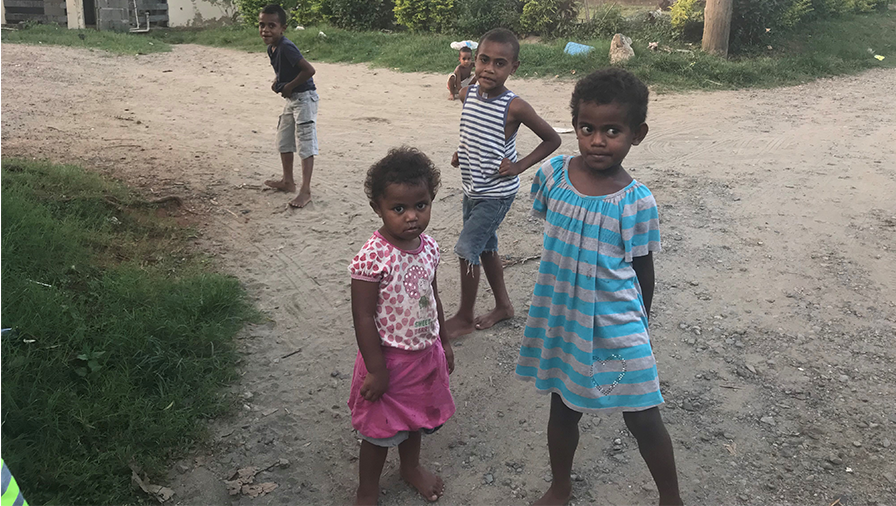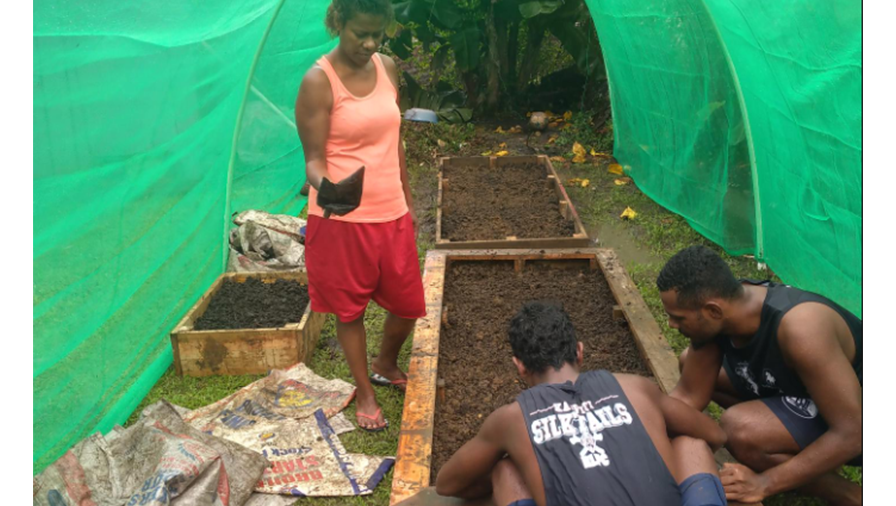Tim, Jim and the Givealittle Fiji project
NBR’s owners are helping raise money for Covid-affected villagers to grow their own vegetables.
NBR’s owners are helping raise money for Covid-affected villagers to grow their own vegetables.
This story starts with the late Jim Momolevu and his village of Navoci in Fjii.
NBR owners Todd and Jackie Scott have been visiting Fiji for more than a decade, and Jim was typically their driver when they needed to get to and from the airport and the like.
Since his sudden death five years ago, the Scotts continued a close connection with Jim’s village and family and, in particular, his twin brother Tim, helping out with money and food when they could.
The Scotts returned to Fiji to live earlier this year, just four days before the country’s first community Covid case. This week, the Pacific Island nation reported 42 Covid deaths to date and 791 new cases.
Jackie Scott said the pair wanted to do something to help “their own” village, which they have a personal connection to and which has also had an outbreak of Covid cases in the past week. But they also wanted to help others in a country struggling to contain the Covid-19 virus.
They have teamed up with Fiji company Grow Together and set up a Givealittle page this week to help fund organic gardens so villages can grow vegetables and herbs to use for their own families and to sell any excess in the markets. The page says the health emergency is also an economic one. Fiji has no social welfare system, so no work equals no money.

Canadian ex-patriate Patrick Lawson and husband and wife duo, John Magnifico and Janice Nand, are behind Grow Together Fiji. Lawson has worked with villagers in the past with small livestock farming such as goats and pigs and saw the need for more local produce rather than imported goods.
Nand and Magnifico set up consultancy and tech solutions firm Solved (Fiji) Group on their return to Fiji in 2015. The Fiji Sun reported at the time the pair wanted to use their IT expertise to help “digitally transform” Fiji, including through the use of digital agriculture, irrigation (that doesn’t require power) and water tanks.
Grow Together Fiji is providing organic raised gardens, soil, seedlings, fertiliser, irrigation systems and workshops on how to grow a range of 15 different vegetables and herbs (such as lettuce, cucumbers, tomatoes, broccoli, cauliflower) to help solve an immediate need for food and provide income longer term. The company also guarantees replacement if any damage occurs within the first nine months due to cyclones and the raised beds are at a height that wouldn’t be affected by flooding in low-lying villages.
With tourism badly affected by Covid, many villagers have lost their jobs and live day-to-day on basics such as roti and cassava. Lawson said Fijians were typically used to growing root crops that involve less nurturing than other vegetables and need educating on how best to grow the new crops.
Grow Together is paid $2500 to provide six garden beds – which equates to 10sq m of space – and the other materials needed to grow the vegetables. The donated money – which has so far hit $10,810 on the Givealittle page – is held by the Scotts in a separate bank account until the gardens are delivered. Lawson said the company did have a small “profit margin” factored in because it was not big enough to do the work for free.

The hurdles
The Scotts met Lawson at a local hotel when they ended mandatory isolation on their arrival back in Fiji, where he told them about the 12 demo farms the company had started a year ago.
“We thought ‘Oh My God can we pay for one to be set up in our village?’ And then it has gone from there,” Jackie Scott said.
Some $11,000 was also provided a year ago by the United Nations Development Programme (UNDP) to get those 12 demo gardens up and running, Lawson said.
It hasn’t all been plain sailing though. Of the 12 demo farms, eight have been successful but four never eventuated because the locals involved sold the materials for firewood. Some of the seedlings provided from New Zealand also didn’t suit Fiji’s hot climate, although Lawson said they have now overcome that issue by getting heat-tolerant seedlings.
Also hampering their efforts to provide support to growers have been the containments and curfews since Covid-19 broke out, he said.
He’s hoping to gain access to the Navoci village next Friday to complete work on a number of garden beds the Scotts have personally paid for and then set up others as the Givealittle funding comes through. Jackie Scott said she would upload photos of the garden beds and videos with the villagers involved to the Givealittle page as the gardens eventuate so donors could see the work in action.
Lawson said the company is now doing more serious vetting and working on a formal contract to ensure those villagers given the materials intend to use them for the right purpose.
Also under development is a phone app, Makete Shop, which will eventually allow villagers with surplus produce to advertise, sell and receive payments via the app.